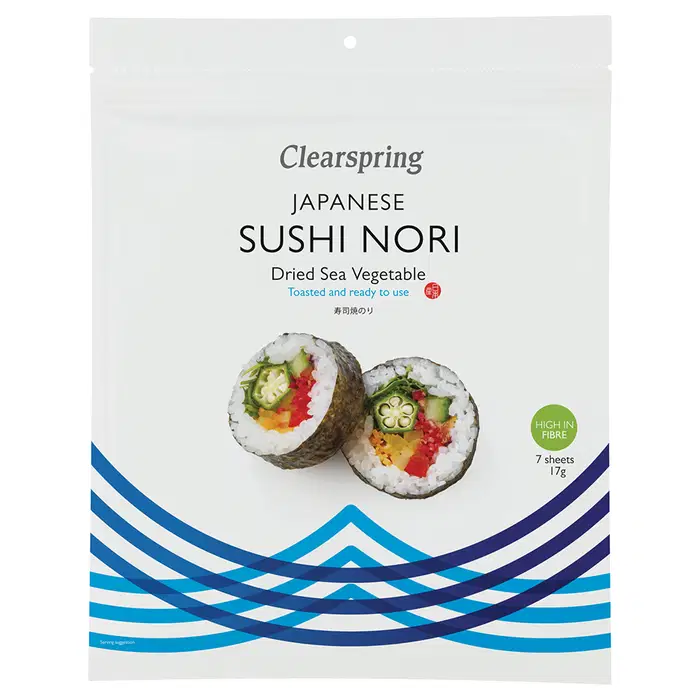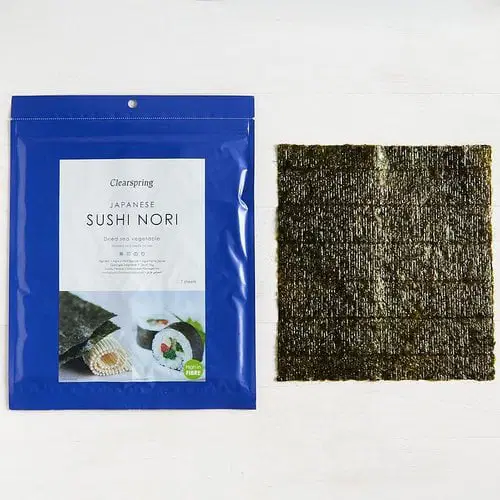

Similar products
Called “hoshi nori” in Japanese, Nori is perhaps the most well-known seaweed. They are often used as a wrap around rice and vegetables or in sushi rolls. Nori is a lilac-red seaweed species in the red algae group. Nori is rich in protein, full of vitamins and minerals such as iodine and calcium. 7 sheets á 17 grams.
Get notified when back in stock
We'll send you an email as soon as the product is back in stock.
Nori
Called "hoshi nori" in Japanese, Nori is perhaps the most well-known seaweed. It is commonly used as a wrapper around rice and vegetables or for sushi rolls.
Nori is a purple-red seaweed belonging to the red algae group. Nori is rich in protein, packed with vitamins and minerals such as iodine and calcium. Nori contains almost 10 times more potassium than a banana and nearly five times more vitamin C than oranges. Nori is also rich in vitamin A and many important trace elements.
Usage: Nori is best known for its use in sushi, but it can also be used to make a nutritious wrap with your favorite ingredients or shredded into salads and soups. You can fill your wrap with, for example, grated vegetables, lettuce, cucumber, avocado, raw rice, quinoa, millet, buckwheat, dried berries, seeds, tofu, goat cheese, feta cheese: yes - whatever you like! Then you can sprinkle any dressing over it (tamari and ginger is always delicious), roll it up and yum;
a perfect lunch, as a snack for outings or as a between-meal snack.
Ingredients: Roasted, dried Nori sheets (Pyropia yezoensis). Sustainably cultivated, harvested and then dried. Due to the product's natural origin, it may contain traces of fish, mollusks and/or crustaceans.
Content: 7 sheets of 17 grams each.
Country of Origin: Japan.
Clearspring's Nori is cultivated and produced using traditional methods in Kyushu, Japan. Some varieties of seaweed such as hijiki, arame and dulse are wild-harvested using sustainable methods, while others, like nori are cultivated in Japan and other East Asian countries. Although originally gathered from the wild, nori has been cultivated in Japan for over 300 years. Nets made of woven ropes impregnated with nori spores are hung up each year between long bamboo poles deep in calm,
shallow bays. The height of each net is designed so that the seaweed remains above water level during low tide, providing the growing nori with maximum sunlight, while being washed by water during high tide. In early spring, they are harvested and brought ashore, where they are washed, cut, and dried.
Nutritional content per 100 grams:
Energy: 787 kJ / 188 kcal
Fat: 0.5 g
Of which saturated fat: 0.17 g
Carbohydrates: 1.9 g
Of which sugars: 0.6 g
Protein: 41.4 g
Salt: 1.25 g
Fiber: 45.3 g
Manufacturer: Clearspring, England.
Roasted, dried nori algae.